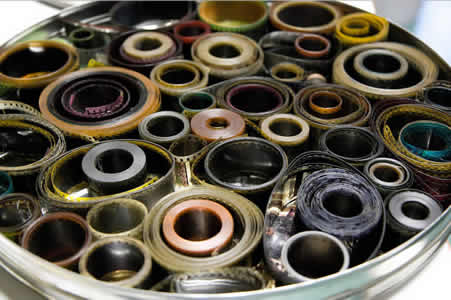Should you clean your film before sending it off to be digitized? The short answer is no, because we’ll do it for you, at no cost. We’ll also repair, splice and lubricate your film. Your film may also require repair work, so simply cleaning it may not be enough to prepare it for the transfer process.
However, cleaning your film is also not a simple process.
Theoretically, you could probably do it. But it requires a set of manual rewinds, film cleaners, cloths (100% cotton) and maybe even rubber gloves. Plus a lot of time.
There are a number of cleaners on the market, and you’ll have be very sure of which one to use. They dry at different rates – from fast to several days. Who wants to leave all that precious film laying on tables or strung up around a workshop for days? You’ll also need to work in a well ventilated area. Remember, you’re working with chemicals.
In addition, before any cleaning is done, the film needs to be inspected because any loose splices, nicks and sprocket tears can snag the cloth when cleaning, and potentially tear the film, creating more damage.
You’ll also need to understand how to handle the film. For example, that you have to fold the cloth over the sound side (and not the sprocket side) when cleaning very old archival sound film.
Your prescious family memories are likely quite brittle, dry, curled, or may even smell a little like vinegar.
If you’re planning on converting and transferring your 8mm, 16mm of Super 8mm film to a digital format like DVD, Bluray or mp4, then the film needs to be cleaned first – and cleaned properly. If it’s not, then every single spec that’s not cleaned properly will be vastly more noticable than if it was 35mm. And it’s very hard to tell if you did a thorough job of it.
So all in all, to do a good job requires a lot of learning, a lot of time, and the purchase of equipment. Unless you’re a real film DIY afficionado, it’s probably not worth the attempt from either a time or a cost perspective.
If your objective is to clean your 8mm, 16mm of Super 8mm film and then have it transferred to DVD, Bluray or mp4, then the best, fastest (and safest) route is to send it on to us – since we’ll do all of this for you, and send you back a well cleaned and preserved film. Plus, your memories will now be preserved for generations to come, in a digital format, that will never wear out.

